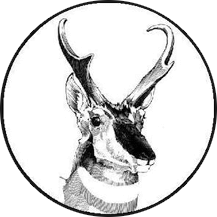WHEREAS, tropical rainforests in Australia occur only within restricted localities in North Queensland and occupy a small fraction (0.1%) of the continental land area, yet support a disproportionately high diversity of endemic mammal species; and
WHEREAS, it has been documented that Australian tropical rainforests are of international scientific value because of their high biological diversity, extreme age, and large proportion of primitive endemic plant and animal species, and of historical importance with respect to the origin and evolution of flowering plants; and
WHEREAS, a number of mammal species occur almost uniquely in tropical rainforests in North Queensland, have highly restricted geographic or elevational distributions, or are represented by well-differentiated subspecies within tropical forests, especially including the Atherton Antechinus (Atechinus godmani), lemuroid ringtail possum (Hemibelideus lemuroides), Herbert River ringtail possum (Pseudocheirus herbertensis herbertensis and P. h. cinereus), green ringtail possum (P. archeri), grey cuscus (Phalanger orientalis peninsulae), spotted cuscus (P. maculatus nudicaudatus), long-tailed pygmy possum (Cercartetus caudatus), brush-tailed bettong (Bettongia penicilliata tropica), musky rat kangaroo (Hypsiprymnodon moschatus), Bennett's tree kangaroo (Dendrolagus bennettianus), and Lumholtz's tree kangaroo (D. lumholtzi); and
WHEREAS, extensive clearing of rainforest tracts during the last 80 years has reduced lowland coastal rainforests by more than 50% and total upland areas by about 20%, and has resulted in extensive fragmentation of formerly continuous tracts in the coastal lowlands and on the Atherton Tableland; and
WHEREAS, logging practices in North Queensland rainforests are more widespread and more intensive than historical harvest methods and have reduced the prevalence of undisturbed habitats outside national parks by about one-third; and
WHEREAS, many tropical tree species exhibit an unusual degree of interdependence with, and provide critical resources for, a diverse assemblage of animal species, especially certain bird, bat, and other pollinators and seed dispersers dependent upon a number of different plant species for year-round survival; and
WHEREAS, the effects of selective logging and habitat fragmentation on tropical forest biota are poorly understood, particularly with regard to the long-term survival of species in areas subject to fragmentation or the removal of a broad spectrum of tree species during selective logging operations,
THEREFORE, BE IT RESOLVED that the American Society of Mammalogists urges the State Government of Queensland and the Federal Government of Australia to (1) make every effort to halt expansion of logging operations into remaining pristine rainforest tracts, particularly in the Downey Creek, Russell River, and Mcllwraithe Range areas, (2) develop forest management practices which limit the extent of intensive tree harvests in rainforests, (3) prevent further habitat loss in fragmented systems such as the Atherton Tableland and Lockerbie Scrub vicinity, (4) support expansion or designation of national parks in the greater Baintree region, the Downey Creek catchment, the Mcllwraithe Range, and the Johnstone River and Russell River areas, and (5) endorse both national and international efforts to nominate the Wet Tropical Region of North Queensland between Cooktown and Townsville for inscription on the World Heritage List.
